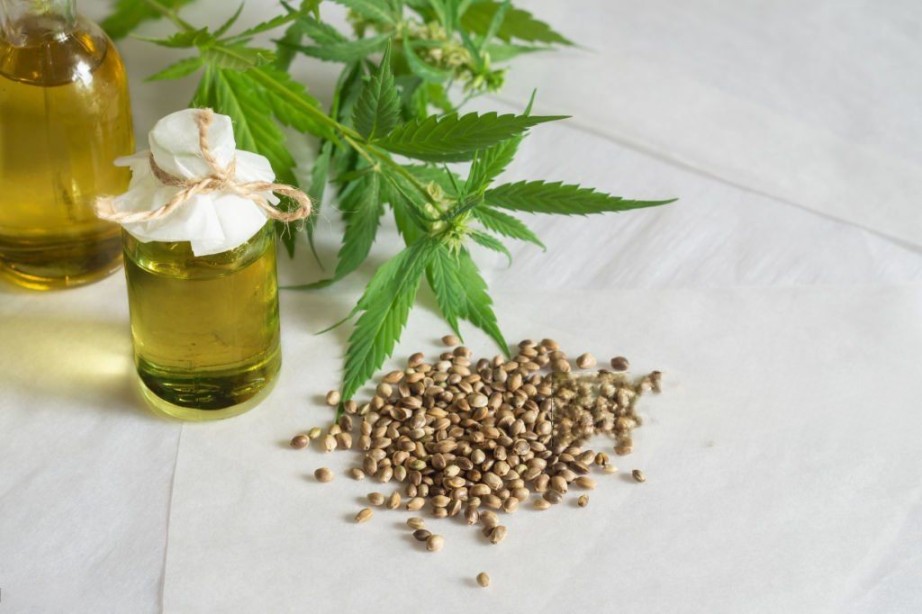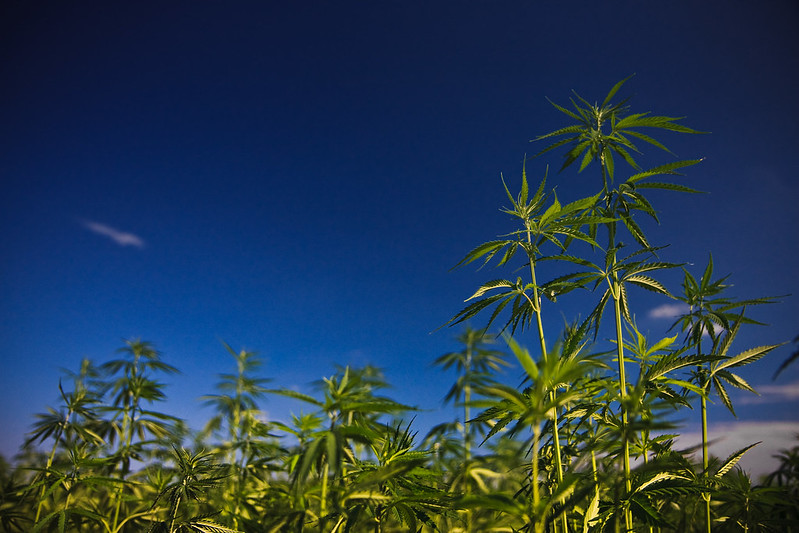Le hempHemp, also known as industrial hemp, has become a controversial topic in recent years. Although it has a long history in agriculture and industry in many countries, hemp faces legal and social challenges due to its association with cannabis. This article explores the various benefits of hemp as well as its legal status, in order to provide a global vision of this plant and its potential in various areas of life and the economy.
Table of contents
Introduction to hemp
Origins and history of hemp
Hemp has a long and rich history, with evidence of its use dating back thousands of years. Native to Central Asia, hemp has been cultivated and used by man since ancient times. In the past, it has played an important role in many cultures, not only as a source of useful materials, but also in traditional medicine and religious rituals.
In ancient China, hemp was used to produce paper, cloth and rope for over 8,000 years. In Europe, hemp has been widely cultivated since the Middle Ages, mainly to make cloth and rope for the navy. In the United States, founders such as George Washington and Thomas Jefferson also grew hemp on their land.

Biological characteristics of hemp
Hemp (Cannabis sativa L.) is an annual plant in the Cannabaceae family. It can reach heights of 2 to 4 metres, with a straight stem and characteristic palmate leaves. Hemp is highly adaptable to a variety of environments, from temperate to tropical zones.
An important characteristic of hemp is its low content of tetrahydrocannabinol (THC) - the psychoactive compound - generally less than 0.3%. This distinguishes it from cannabis used for recreational or medical purposes, which has much higher THC levels. Hemp, on the other hand, is rich in cannabidiol (CBD), a non-psychoactive compound with many potential health benefits.
Differences between hemp and cannabis
Although hemp and cannabis belong to the same plant species, there are some important differences. The main difference lies in the THC content. Whereas cannabis is grown to maximise the THC content, hemp is grown to maximise the THC content. THCHemp is selected and grown to have the lowest possible THC content.
The two plants also differ in their uses and cultivation methods. The hemp is mainly grown for its fibres, seeds and other industrial products, while the cannabis is grown for medical or recreational use. Morphologically, hemp is often taller and more slender, with fewer branches than cannabis.
The benefits of hemp in industry
Textile and clothing production
One of hemp's most important applications is in the textile industry. Hemp fibres have many superior properties, making them an ideal material for the production of fabrics. Hemp fabric is highly resistant, absorbent, breathable and naturally antibacterial.
The production of fabric from hemp begins with the separation of the fibres from the stalk. The fibres are then processed and woven into fabric. Hemp fabric can be used to make a variety of products, from everyday clothing to furniture and even canvas. Notably, hemp fabric becomes softer and more comfortable over time, unlike many synthetic fabrics.
What's more, the production of hemp fabric is considered to be more environmentally friendly than many other fabrics. Hemp requires few pesticides or fertilisers, and processing the fibres consumes less water and energy than cotton.
Applications in construction and materials
Hemp is also increasingly used in the construction industry and in the production of materials. One of the most notable applications is the use of hemp concrete (hempcrete). This is a building material made by mixing the core of hemp wood with lime and water. Hempcrete offers a number of advantages, including lightness, good thermal insulation, fire resistance and the ability to absorb carbon dioxide from the atmosphere.
In addition, the hemp fibres are used to produce effective insulating and acoustic materials. These products are not only environmentally friendly but also highly recyclable. In the automotive industry, hemp fibres are used to manufacture interior parts, helping to reduce vehicle weight and improve fuel efficiency.
Paper and packaging production
Hemp is also an excellent source of raw material for the production of paper and packaging. Paper made from hemp fibre is highly durable and can be recycled several times more than wood paper. This not only helps to preserve forests but also reduces the environmental impact of the paper industry.
The process of making paper from hemp also consumes fewer chemicals and less energy than producing paper from wood. What's more, hemp can be harvested every year, whereas trees often take years to mature. This makes hemp a more sustainable source of raw material for the paper industry.
The health and well-being benefits of hemp
Beneficial compounds in hemp
Hemp contains many health-promoting compounds, including cannabidiol (CBD). The CBD is a cannabinoid that does not produce psychoactive effects but has numerous health benefits. In addition to CBD, hemp is rich in essential fatty acids such as omega-3 and omega-6, as well as important vitamins and minerals.
Studies have shown that CBD can have anti-inflammatory and antioxidant effects and even help treat certain neurological conditions. In addition, hemp oil contains gamma-linolenic acid (GLA), an omega-6 fatty acid with anti-inflammatory effects that may support skin health.
Applications in the treatment of diseases
CBD derived from hemp is being extensively researched for its potential to treat a variety of diseases. Some potential applications include:
Treatment of chronic painCBD: CBD can help reduce pain and inflammation in patients suffering from conditions such as rheumatoid arthritis or neuropathic pain.
Reduced anxiety and depressionSome studies suggest that CBD may have sedative and antidepressant effects.
Treatment of epilepsy: The FDA has approved a drug containing CBD to treat certain severe forms of epilepsy in children.
Support in cancer treatmentAlthough more research is needed, there is preliminary evidence that CBD may help reduce some of the side effects of chemotherapy.
Hemp-based skincare and wellness products
As well as medical applications, hemp is widely used in the cosmetics and healthcare industry. Hemp oil, rich in fatty acids and vitamin E, is a popular ingredient in skin and hair care products. It has a strong moisturising capacity without clogging pores, making it suitable for many skin types, including sensitive skin.
CBD is also added to many skincare products to take advantage of its anti-inflammatory and antioxidant effects. These products include creams, serums, masks and even lip balms. In addition, hemp seed proteins are used in food supplements and functional nutrition products.

The benefits of hemp for agriculture and the environment
Soil restoration and environmental rehabilitation
Hemp has a significant capacity to restore soils, making it an important tool in sustainable agriculture and environmental rehabilitation. Its deep and extensive root system helps to aerate the soil, improve its structure and increase its water retention capacity. This is particularly useful for restoring degraded or contaminated soils.
In addition, hemp has the ability to absorb heavy metals and other pollutants from the soil, a process known as "phytoremediation". This makes it a potential tool for cleaning up areas polluted by industry or mining.
Hemp can also be used in crop rotation systems to provide organic matter to the soil and prevent degradation due to excessive cultivation. Using hemp in agriculture not only helps to improve soil quality, but also reduces dependence on toxic chemical fertilisers and pesticides.
Use as livestock feed
Hemp seeds can also be used as livestock feed, particularly for poultry and pigs. Hemp seed is an excellent source of protein, essential fatty acids and minerals, providing a balanced diet for animals.
Studies have shown that including hemp seed in livestock feed can improve meat and egg quality, increase weight gain and improve the overall health of the animals. What's more, hemp seed is easily digestible, making it an effective nutritional supplement.
Using hemp as feed for livestock is not only beneficial for the health of the animals, but also for farmers, as it can reduce feed costs and increase farm profitability.
Reducing the carbon footprint
Hemp plays an important role in reducing the carbon footprint of various industries. As a fast-growing crop, hemp absorbs a significant amount of carbon dioxide (CO2) during its growth. In fact, some studies estimate that hemp can absorb up to 1.63 tonnes of CO2 per hectare.
In addition, products made from hemp, such as hemp concrete and building materials, can also continue to sequester carbon throughout their lifetime. This helps to mitigate the effects of climate change by reducing the amount of CO2 in the atmosphere.
By using hemp-based materials, industries can not only reduce their CO2 emissions but also offer sustainable alternatives to more polluting traditional materials. Ultimately, this helps to create a greener, more sustainable economy.
Hemp plants and economic development opportunities
Creating employment opportunities
The expansion of hemp cultivation is creating employment opportunities for many people, particularly in rural areas with suitable natural conditions. Growing, caring for and harvesting hemp requires manual labour, creating jobs for local people and improving their economic and social lives.
In addition, the development of the hemp processing and production industry also creates numerous employment opportunities in sectors such as the food, pharmaceutical and cosmetics industries, to name but a few. This not only generates income for workers, but also stimulates local economic development.
Boosting exports and foreign currency earnings
Hemp also offers opportunities to boost exports and increase foreign exchange earnings for the country. Hemp oil and related products can be exported to many countries around the world, meeting the growing demand for natural and organic products. The expansion of export markets for hemp-based products increases the value of exports and strengthens the country's position on the international market.
In addition, the development of the hemp processing and production industry also creates opportunities to develop value-added products, thereby increasing income for the country. Investing in research and development of processing technologies improves product quality and diversifies the range of hemp-based products on offer.
Promoting sustainable development
The use of hemp in various industrial sectors not only generates economic benefits but also promotes sustainable development. Replacing fossil raw materials with renewable raw materials from hemp reduces the negative impact on the environment and natural resources.
In addition, the use of hemp-based products in medicine, healthcare and agriculture contributes to building a sustainable community with better health and a healthier environment. Encouraging the development of hemp is not only an economic opportunity but also an important step in building a sustainable future for future generations.

Is hemp legal in Switzerland and France?
The legal status of hemp (Cannabis sativa) varies from country to country. Here's the legal situation in Switzerland and France:
Switzerland
Legalisation of CBD: Switzerland authorises the cultivation and sale of hemp-based products containing cannabidiol (CBD) with a tetrahydrocannabinol content (THC) not exceeding 1%. CBD has no psychoactive effect and is widely used in medicine and healthcare products.
Medical legalisationHemp containing more than 1% of THC is only authorised for medical products under strict supervision and with a doctor's prescription.
Recreational legalisationThe possession and use of hemp containing more than 1% of THC for recreational purposes remain prohibited and may result in administrative or criminal penalties.
France
Legalisation of CBD: France authorises the production and sale of hemp-based products containing CBD, provided that the THC content is less than 0.3%. These products include CBD oils, cosmetics and food supplements.
Medical legalisationHemp containing THC can be used in certain strict medical cases under medical supervision. France is currently running pilot programmes to assess the effectiveness of medical cannabis.
Recreational legalisation: The possession, use and sale of hemp containing more than 0.3% The use of THC for recreational purposes remains prohibited and may result in severe penalties.
Switzerland and France, for example, have specific regulations governing the use of hemp, clearly distinguishing between products containing CBD and THC. The CBD-based products are more widely legalised, while products containing THC are mainly used medicinally and are strictly controlled.
Conclusion
Here are the major benefits that hemp brings to mankind and the environment. From industry and medicine to agriculture and economic development, hemp plays a key role in promoting sustainability and integral development. The efficient and sustainable exploitation and use of hemp will enable us to make progress towards building a better future for our planet.










